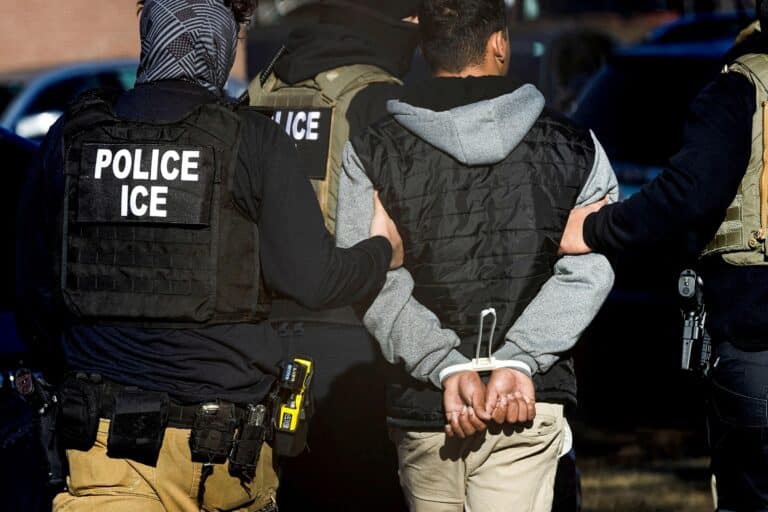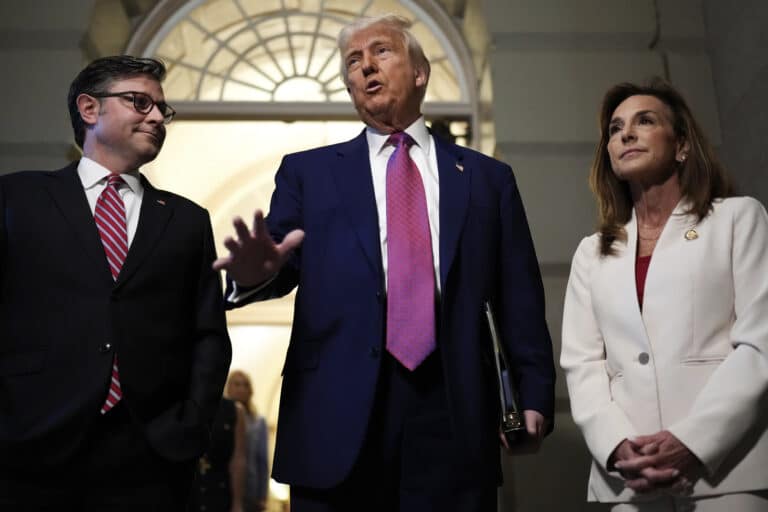The recent surge in California protests has brought renewed attention to how personal data can become a tool in political confrontations. As demonstrations erupted in Los Angeles opposing the Trump administration’s hardline immigration policies, concerns grew regarding the safety of demonstrators’ information. The National Guard deployment and heightened military presence made privacy advocates, lawmakers, and residents increasingly aware of their digital footprints.
The roots of concern: from ice enforcement to mass surveillance fears
Public skepticism about surveillance is not new, but the militarized response to anti-ICE actions has intensified doubts about federal intentions. Immigration raids, often carried out with local law enforcement support, have reignited debates in Sacramento over state sovereignty and the appropriate reach of Washington into Californian lives.
Central to these tensions is ICE enforcement, which now relies not only on direct policing but also on data collected from smartphones, apps, and everyday digital services. Privacy groups warn that this broadens the potential for intrusive monitoring—something that would have seemed far-fetched just a decade ago.
Trump-appointed officials set an aggressive tone
Following public outcry, statements by officials closely associated with President Trump indicated a strong desire to identify activists using every available technological means. Experts tracking these developments note that video footage, license plate scanners, and social media scraping are all being considered as tools to monitor protest activity.
While concrete evidence of widespread abuse remains limited, anecdotal accounts and leaks suggest that authorities possess far greater capacity to observe crowd movements and single out participants than many realize. This environment heightens anxiety within activist communities.
The scope of federal overreach alarms state leaders
Governor Gavin Newsom and other leading California officials regularly challenge what they view as federal overreach. The use of modern data collection tools adds urgency to ongoing disputes between champions of state sovereignty and agencies executing directives from the White House.
After reports emerged about protester tracking, Attorney General Rob Bonta acted quickly. His office initiated investigations into possible violations of state privacy laws, vowing accountability if any cooperation infringed upon Californians’ rights.
Data brokers take center stage amid political clashes
The world of data brokers may seem distant, yet their influence touches nearly everyone with a smartphone. In the context of National Guard deployment and tense California protests, the stakes are even higher. Advocacy organizations worry that unchecked data sales could allow federal entities—especially those involved in ICE enforcement—to bypass local privacy regulations.
Location data, quietly collected through countless popular applications, creates an invisible trail behind each user. Although privacy policies technically disclose these practices, few individuals understand how detailed and precise this information can be. Lawmakers fear that when such data reaches the hands of Trump administration agencies, protesters become easily traceable, increasing risks of repression.
- Mobile apps collecting location points without explicit consent
- Data aggregators selling bulk records across the country
- Government contractors purchasing datasets for intelligence gathering
- Advocacy groups monitoring data flows and alerting legislators
These complex links between private vendors and government buyers remain a persistent obstacle to California’s regulatory ambitions.
Legislative efforts face hurdles despite mounting pressure
California boasts a robust history of privacy protection compared to most states. Laws like the California Consumer Privacy Act (CCPA) have set new standards for corporate handling of resident data. However, the rapid advancement of surveillance techniques has created regulatory gaps that authorities are struggling to address. Following high-profile California protests and revelations about data sharing, some legislators called for urgent updates.
Assemblymember Chris Ward became a prominent advocate for stricter controls. Together with privacy activists, he proposed bans on selling sensitive location information to federal agencies. These initiatives aimed to ensure that the California state response to civil unrest would not be undermined by silent transfers of data from private companies to actors aligned with the Trump administration.
Budget constraints and business opposition slow progress
Enacting new rules involves significant costs, especially when enforcement requires advanced technology or expanded oversight. Pro-business groups argue that sweeping restrictions threaten commerce and innovation, while others claim excessive regulation could hinder legitimate security operations during emergencies requiring swift coordination.
This tension has left reform efforts stalled, disappointing those who hoped the momentum from recent protests would lead to immediate action. The result is a legislative scene characterized by delays, revisions, and unfinished bills awaiting further debate.
Unregulated data sharing raises threat levels for demonstrators
Communities most at risk from immigration raids or targeted for protest involvement experience the greatest fear. Digital advocacy organizations call for faster crackdowns on unlicensed data sharing, warning that information exchanged today might resurface under future administrations in Washington.
Critics emphasize that a major leak or sale to an aggressive official could disrupt lives and suppress free assembly. Concerns grow each time news surfaces about newly discovered databases, hacking incidents, or wrongful arrests traced back to digital footprints.
Community vigilance meets complex technology
Civic awareness campaigns aim to address technical blind spots. Residents receive guidance on limiting app permissions, using encrypted messaging, and reducing exposure during large California protests. Materials produced by coalition groups help activists minimize risks while making their voices heard in public forums.
Still, the sophistication of modern tracking technologies frequently surpasses what individuals can counteract on their own. From facial recognition in crowded areas to drones overhead, each development transforms the dynamics of collective action. Many rely on encryption and privacy settings, but there is no guaranteed way to erase digital traces once created.
The enduring tug-of-war between state and federal priorities
As Governor Gavin Newsom and his team position themselves as defenders of state sovereignty, ongoing conflict persists between local protections and mandates from Washington. Federal task forces sometimes request access that cities or counties wish to deny for legal and ethical reasons.
This ongoing push and pull extends well beyond California protests, influencing decisions made daily by city councils, tech firms, and school districts weighing community obligations against the risk of federal penalties.
Possible future paths for California’s data privacy regime
Despite setbacks in Sacramento, calls persist for stronger barriers separating Californians’ private data from external interests. Some advocate independent audits of municipal contracts involving data exchange, while others propose citizen-led oversight boards to review compliance regularly.
There is growing demand for transparency in dealings between technology companies and government partners. Standard company explanations about “aggregated, non-personally identifiable information” rarely satisfy, especially after repeated stories of poorly secured or covertly traded records. A combination of awareness campaigns and legislative refinement could shift the balance if pursued effectively.









